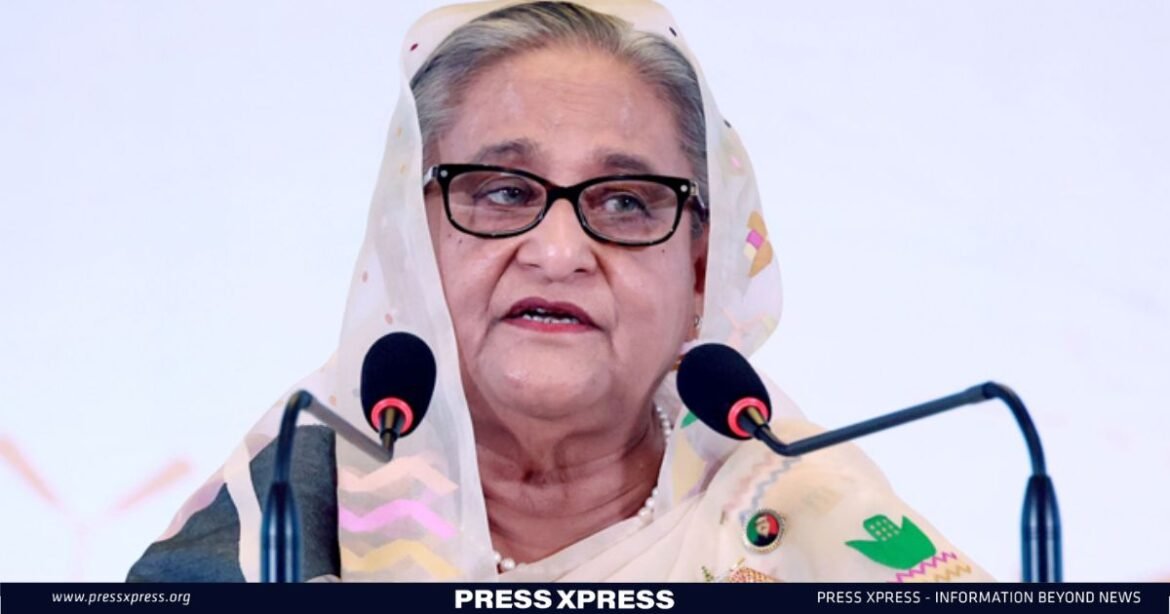While announcing the election manifesto in Dhaka on Wednesday (Dec 27), Awami League party chief and Prime Minister Sheikh Hasina said effective measures will be taken against money launderers. She expressed her and her party’s continued resolve to develop Bangladesh while reducing corruption, money laundering, and continued policy of “zero tolerance” on nefarious actors who commit such crimes.
You can also read: AL’s Election: A Gateway to a Smart Bangladesh
The prime minister’s statement already matches the government’s initiatives. The government, as early as 2011, had started proceedings to bring back money laundered by Tarique Rahman, 21 crores of which were brought back eventually. The Bangladesh Financial Intelligence Unit, in 2016, reported the recovery of 1,294 crore from money launderers. The government has taken several initiatives over the years to bring back laundered money.

In a significant development related to a money laundering investigation, shares belonging to two prominent companies in Dubai, along with five bank accounts situated in Malaysia, have been seized. This action follows court orders issued back in 2019, shedding light on the ongoing pursuit of illicit financial activities.
Moreover, recent updates reveal that the Anti-Corruption Commission (ACC) has taken robust measures in 2021. They have executed freezes on a considerable number of bank accounts across various countries, intensifying efforts to curb the proliferation of illicit funds. Notably, the ACC’s actions included the freezing of 21 bank accounts in Canada, a staggering 24 in Australia, and an additional five in Singapore.

PM on Corruption
In an empowering pledge, the PM vowed to combat corruption and hold debt-tax-bill defaulters accountable, the Prime Minister of Bangladesh assured stringent actions during an address to the nation. Promising to eradicate corruption at its core, the Prime Minister emphasized the confiscation of illegal money and property belonging to defaulters.

Highlighting the government’s unwavering commitment, the Prime Minister affirmed the implementation of strict law enforcement to recover defaulted loans. She outlined that the policy interest rate would serve as a pivotal tool in controlling the money supply and curbing inflationary pressures, emphasizing a balanced approach toward economic stability.
The PM’s statements can be backed up by empirical data. A recent report released by the central bank has shed light on the remarkable recovery within the banking sector. The report indicates that banks have successfully recovered an impressive sum of Tk23,328 crore from resolved cases as of June this year.
The revelation underscores a positive trend in the banking industry’s efforts toward resolving outstanding cases, signaling a notable achievement in retrieving significant amounts tied to these resolved matters. This commendable recovery stands as a testament to the persistent endeavors undertaken by financial institutions to address and mitigate the challenges posed by unresolved cases. The substantial sum recuperated from these resolved cases signifies a step towards strengthening the financial health of the banking sector.
The Prime Minister lauded the nation’s outstanding economic growth, acknowledging its transformation into a global economic force over the past fifteen years. Bangladesh’s remarkable ascent to the 33rd position among the world’s largest economies based on national income underscores its impressive progress on the global stage.
Emphasizing a resolute commitment to combat corruption and financial malpractice, the Prime Minister outlined a comprehensive strategy to eradicate bribery and corruption at all levels of the state and society. The government pledges to hold accountable those involved in unearned income, loan defaulting, tax evasion, and corrupt activities. Rigorous measures, including legal repercussions and the confiscation of illegal assets, aim to rectify these financial injustices.
Under the leadership of the Awami League, a steadfast zero-tolerance policy against corruption has been adopted. Collaborative efforts with the public have been instrumental in the government’s endeavors to eliminate corruption from society. To instill anti-corruption values among students, educational initiatives will incorporate chapters elucidating the detrimental impacts of corruption and methods to prevent it.
A Vision for the Future
Looking ahead with a vision for transformative change, the government, if elected with the people’s mandate, aims to substantially reduce the poverty rate to 11 percent. Extreme poverty will be eradicated, aiming to diminish it to a mere 3 percent by the year 2041. The Awami League remains committed to emphasizing the pivotal role of the private sector in economic development. The strategy involves leveraging joint investment opportunities between the public and private sectors in judicious instances, fostering a balanced approach toward economic growth.
The Prime Minister’s comprehensive vision encapsulates the government’s commitment to root out corruption, uplift the nation from poverty, and promote sustainable economic development. The emphasis on anti-corruption measures and the pivotal role of the private sector aligns with the overarching goal of fostering inclusive growth and progress for Bangladesh.


